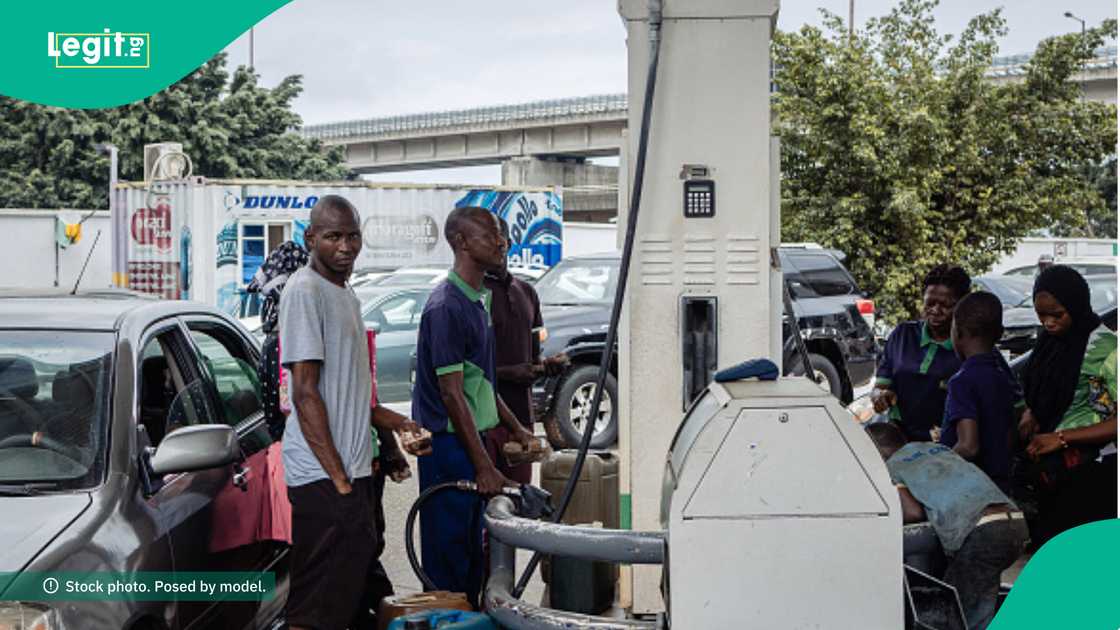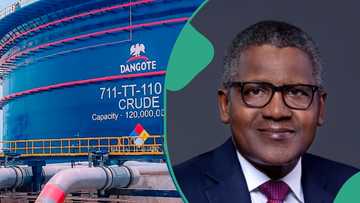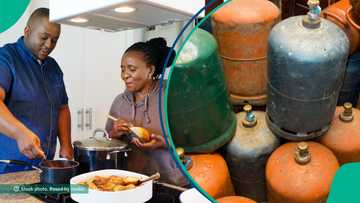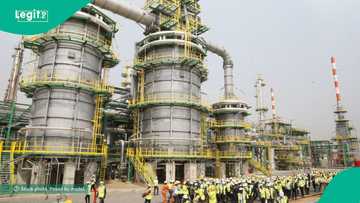Tinubu’s 5% Fuel Surcharge Sparks Outrage, Nigerians to Pay N45 Per Litre Extra on Petrol
- The new 5% fuel tax introduced by the Nigerian government will see citizens paying more for petrol
- According to petroleum product marketers, Nigerians will cough up about an extra N45 for every litre of petrol purchased
- The development has already sparked outrage among Nigerians and fuel consumers nationwide
Legit.ng’s Pascal Oparada has reported on tech, energy, stocks, investment and the economy for over a decade.
Nigerians may pay an additional ₦45 on every litre of petrol from January 2026 as the federal government introduces a five per cent surcharge on fossil fuel products under the Nigeria Tax Administration Act.
With petrol currently averaging ₦900 per litre, the new law could raise pump prices to about ₦945 if market conditions remain unchanged.

Source: Getty Images
What the law says
The surcharge, signed into law by President Bola Tinubu on June 26, 2025, is part of sweeping tax reforms aimed at boosting non-oil revenue and promoting clean energy.
The Act stipulates that the surcharge applies to all refined fossil fuel products, including petrol, diesel, aviation fuel, and kerosene, except household kerosene, cooking gas, and compressed natural gas (CNG).
The law states:
- The surcharge is calculated on the retail price of fuel.
- It applies at the point of sale, supply, or payment — whichever comes first.
- The Nigeria Revenue Service (currently FIRS) will administer and collect the surcharge on a monthly basis.
- The Finance Minister, Wale Edun, will determine the official implementation date through a gazette order.
Industry pushback
Fuel marketers have rejected the plan, warning that consumers will inevitably bear the burden.
According to a report by Daily Trust, the National President of the Petroleum Products Retail Outlet Owners Association of Nigeria (PETROAN), Billy Gillis-Harry, recalled that a similar proposal in 2007 was dropped because conditions were unfavourable.
“At that time, 5% meant ₦2 or ₦3. Today, with petrol at ₦850, the same 5% is ₦45. The consumer will be the one to pay because margins are already below 3%. It is a harsh policy,” he said.

Read also
Dangote Refinery shuts down, petrol prices rise as supply slows, filling stations sell at new rate
Marketers also warned that frequent price fluctuations could worsen the situation, as operators may struggle to sell consignments before prices change.
Nigerians react with outrage
The announcement has sparked heated reactions across social media.
Engr. Oyibo Donatus lamented, “Inflation is already crushing Nigerians. This new surcharge will make survival almost impossible.”
Udofia Essien called the tax “inconsiderate,” arguing that Nigeria’s crude oil wealth should shield citizens from such levies.
Dayo Wilson highlighted the cumulative burden: “CNG is now ₦450, diesel ₦1,300, electricity ₦1,000 for 4 units, and VAT at 7.5%. Adding a 5% petrol tax will cripple average Nigerians.”
Presidency defends the move
The government insists the surcharge is designed to support infrastructure. Taiwo Oyedele, Chairman of the Presidential Committee on Fiscal Policy and Tax Reforms, said the revenue would be dedicated to transport infrastructure and logistics.
He added that the implementation date was not immediate and would be carefully chosen by the finance minister.
“The intention is to reduce transport costs and overall inflation in the long run,” Oyedele explained.
Bigger fiscal picture
- The surcharge is part of four tax reform laws signed by President Tinubu:
- Nigeria Tax Administration Act
- Joint Revenue Board (Establishment) Law
- Nigeria Revenue Service (Establishment) Act
- Nigeria Tax Administration Act
Together, these reforms are expected to strengthen revenue collection, cut borrowing, and boost fiscal transparency.
The road ahead
Whether the 5% surcharge delivers its promised benefits or simply deepens the pain of fuel price hikes remains to be seen.
For now, Nigerians are bracing for another round of inflationary pressure in 2026, with petrol already one of the biggest drivers of rising costs.
FG removes subsidy on CNG, prices jump
Legit.ng earlier reported the federal government has removed the subsidy on Compressed Natural Gas (CNG), sparking a surge in prices across the country.
Retailers confirmed that the cost of one standard cubic metre (SCM) of CNG has climbed from around N220–N230 to as high as N420–N450, depending on the vehicle type and station.
Truck operators are now paying N450 per SCM, while commercial and private car drivers continue to enjoy partial subsidies at N380 per SCM.
Source: Legit.ng





